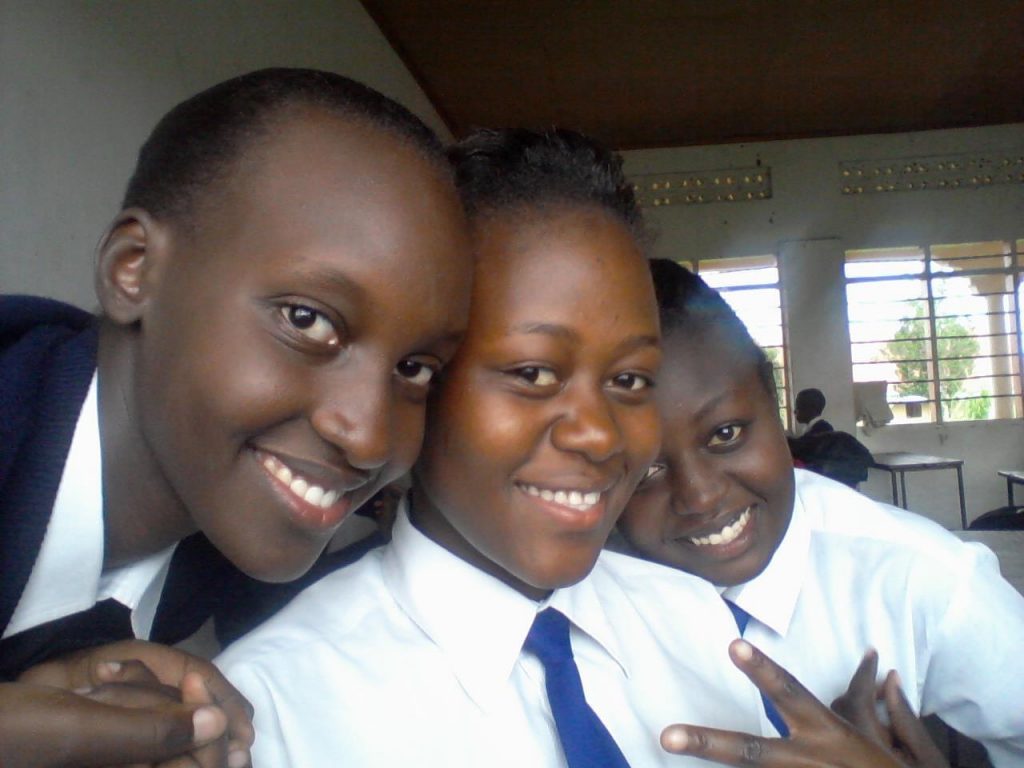For the International Day of the African Child, CHASI is pleased to welcome Dr. Cherie Enns, UFV student Jacqueline Fanta, and UFV alum Njavwa Mukwavi to share the history of the day and their own reflections.
Dr. Cherie Enns
My name is Dr. Cherie Enns, and I teach in both Global Development Studies and the School of Land Use and Environmental Change at the University of the Fraser Valley (UFV). I am also a CHASI faculty associate involved in several African-based projects related to housing and food security policy. A critical area of my applied research looks at child rights within the context of climate change, conflict, and pandemics in collaboration with colleagues in several African countries. More recent professional projects include the development of child-friendly East African Community Child Policy, participation in the creation of an animation celebrating 30 years of the African Charter on the Rights and Welfare of the Child (ACRWC) and I am currently working in 5 African regions as part of the team to create a child-friendly version of the ACRWC. I am honoured to work with pan African organizations, United Nation agencies, international NGOs, and grassroots organizations; often based in refugee settlements. In addition, I manage an international internship program at UFV that provides opportunities for scholars based in Kenya and Tanzania, as well as for our UFV students.
However, as I reflect on the International Day of the African Child, and while I lived in Kenya as a child, I am not an African child. Therefore, it is most fitting to invite a former student and several current students, all born on the continent to share their thoughts. Jacqueline Fanta, a GDS student, leads the discussion looking at the topic of why UFV should care about the Day of the African Child and Njavwa Mukwavi, a former UFV student, follows with a reflection on what the day means to her.
Jacqueline Fanta
UN-Habitat Intern, UFV GDS Student
It is 45 years today since young South African students led a massive uprising in Soweto over the poor-quality education they were receiving and were instead brutally massacred by the apartheid regime. That one single act on June 16, 1976, changed forever the way the world saw the horrors of apartheid but also demonstrated how young people were prepared to sacrifice their lives towards a better life. It took a further 15 years for this day to be declared by the African Heads of State and Government as the Day of the African Child.
Since then, June 16 is celebrated as the Day of the African Child. It is a day when the challenges facing African children throughout the continent are reflected upon, but also a reminder that governments need to do more to support children’s cause. The day aims to raise awareness on the continuing need to improve the education provided to African children. This year’s theme, “30 years after the adoption of the Charter: accelerate the implementation of Agenda 2040 for an Africa fit for children”, is both a call for action and a reminder that a lot needs to be done to secure the future of the African child.
We can at least take comfort from the fact that every year the African Union and its corresponding partners like NGOs, government, stakeholders, and other international organisations gather to discuss the opportunities and challenges faced by the continent’s children and youth but also recognises how the children and youth are working to address these challenges themselves. Most importantly, the views of the children are increasingly being heard and appropriate action is being taken where necessary.

As a female international student born in the continent of Africa with roots in South Sudan and Uganda, currently pursuing a Bachelor’s Degree in Global Development Studies with a minor in Communications at UFV, I consider this day very close to my heart because of its main goal of raising awareness on the need to improve the education provided to African children. For someone who has experienced first-hand what it is like to attain education in Africa and the challenges children and youth in African society face in the process, I can relate to some of these challenges, which include lack of funds to pay tuition, poor learning infrastructure, war troubled zones that disrupt education, and African practices like female genital mutilation that do not support girl-child education, among others. I believe this day is vital in bringing light to the most pressing issues that impede the education of African children and the rights of children in the continent.
Even though I am lucky to have attained good quality education that landed me the opportunity to move abroad to further my learning, I believe UFV should care about this day because the university has quite a number of African international students just like myself. Similarly, UFV’s vision statement is “UFV will be known as a gathering place for learners, leaders, and seekers. We will pursue diverse pathways of scholarship, leading to community connection, reconciliation, and prosperity, locally and beyond.” This speaks directly to not only supporting local initiatives but those beyond, one being the Day of the African Child.
It’s important for UFV to recognize that in order for one to attain a higher level of education, they must first get high school credentials that enable them to qualify for a university education, and so rendering any form of support to the ideals of this day in any way, especially through scholarships, can go a long way in supporting the theme of this year’s Day of the African Child.
As a Global Development student, I have always been passionate about the socio-economic issues that face the African continent and, on my journey to make Africa great, I believe through writings like this that we can raise awareness around the issues of education in Africa and possibly attract the attention of those concerned to act upon them.
As part of this blog, I asked a few people born in the continent of Africa to share their opinions on what the day means to them and why UFV should care. This is what they had to say.
Anonymous
The Day of the African Child is a reminder that Africa’s future will be bright only if all of us prioritize the issues surrounding children’s welfare. We should borrow some positive aspects of Africa’s traditional child management system where everyone is involved in any child’s upkeep. It takes a village, after all, to raise a child.
UFV’s comparative advantage is in education, which is a key building block towards the future of children. They should offer a fixed number of places for African students at the university and give them full scholarships, especially in the areas of technology, finance, administration, and medicine.
Douglas Okwara.
The Day of the African Child means a lot to me as a young man born and raised in Nigeria, West Africa. It is a day that reminds me of the reason to keep fighting for better education and equality for all Africans across the globe. We are Africans and we are not any different from our brothers and sisters abroad.
UFV should absolutely care about this day because it is a huge educational establishment that should continuously promote equality and social diversity. This will help enlighten every student of UFV about the history of this day so that they can understand what a foreign student from Africa, or should I say an African child, has gone through in their past life.
Thank you.
Hleziphi Edworthy
The Day of the African child to me means that every child in Africa needs to get an education. They have a right to be educated and to better their future because an African child is the future, and they need to be empowered in order to bring change in their societies, which can be done through education
UFV should care about this great day because the university has students from all over Africa. This would mean a lot to the African students.
With no doubt today’s children are contributing to growth, development, and peace in a manner that would have made the Soweto children of 1976 very proud.For the University of the Fraser Valley to contribute to this day would be phenomenal.
International Day of the African Child
Former UFV student, Njavwa Mukwavi, MA.
Normally, I would share my experiences working on the African continent and serving with different organizations. When trying to find inspiration on how to commemorate this day, I initially did a Google search. I asked myself: “What is the history of International Day of the African Child?”
This brought me to June 16, 1971 – The Soweto Uprising, when more than 20,000 South African students in the township of Soweto took to the streets after the murder of hundreds of protestors demanding educational change. They were demanding freedom in a society where they were often persecuted and robbed of their identity. They were forced, in their own land, to assimilate to a culture that is not theirs.
Despite my reflection on the courageous acts and radical solidarity demonstrated by these children and youth, I did not want to write another piece about the resiliency or tenacity of the African child.

When I see an African child, I see myself. I see a child full of hope, potential, innocence, and possibility. We are African. We are innovative. We are gifted. We are blessed beyond measure with land so bountiful that it enriches the world. Land that is stripped and exploited. Identity that is often belittled, shamed, or appropriated.
We were all once children.
To me, the International Day of the African Child means respecting the African continent, its vast cultures, and its people. It means making space for, and giving opportunity to those in and from the continent to thrive in their society — Paving the way for a new and better Africa. An Africa for all.
It is simple. An African child is Africa’s future. Invest in the future.
Cherie Enns
I thank the students and former students who shared their perspectives on the Day of the African Child. I am inspired to reach out to colleagues, several born in Africa; and students with similar passions and backgrounds to explore further UFV Day of the African Child collaborative actions beyond the student-led refugee student program (WUSC), selected research projects, and University Canada (QES) internship programs.
This article is part of CHASI’s ongoing series acknowledging some of the significant annual observances that align with our core values.

